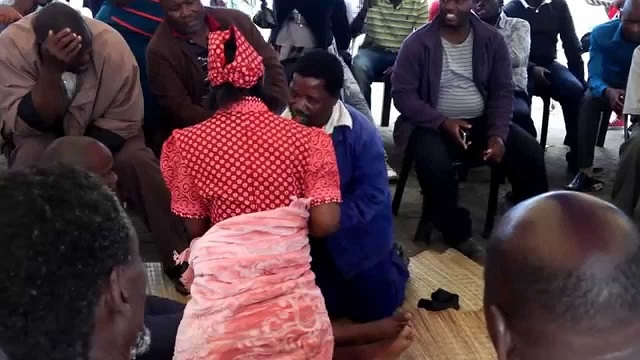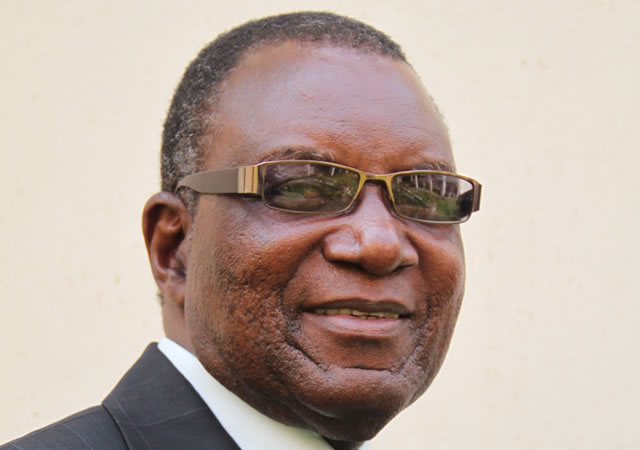Is paying lobola still necessary?

Yoliswa Dube
MARRIAGE was instituted by God in the Garden of Eden at the time of man’s creation as a union between man and woman.
Many consider themselves lucky to have found a life-long partner but others view it as an oppressive institution.
Scores of women suffer at the hands of their husbands while many other men rue the day they paid lobola for their partners as they turn out to be toxic.
Many reasons can account for the discrepancies around this “covenant” but one of the most worrying is that of entitlement resulting in violence and oppression in a marriage.
Often we hear stories about how a man beat up his wife because he “paid for her” or expects her to dress or behave in a certain manner because her parents “charged him a lot of money” therefore he has the right to dictate how she lives her life.
This in itself has drawn attention to lobola, its importance and why society has upheld this culture for so many years.
Questions have been brought up about the significance of paying lobola in African culture and whether or not its continued practice is fuelling gender-based violence and discrimination against women.
Social media was abuzz after a Harare woman recently approached the Constitutional Court challenging the constitutionality of the practice of paying lobola, saying it reduces women to mere “assets” that are open to abuse.
Ms Priccilar Vengesai, a former Chitungwiza municipality chamber secretary, wants the practice to be abolished. Alternatively, she wants parents of both the bride and the groom to be thanked for raising their children well through lobola in the spirit of gender equality.
Ms Vengesai, who is a lawyer, contends that women’s rights to dignity, equality and non-discrimination were at stake and that the courts should be quick to declare the customary practice unconstitutional.
Couples, according to Ms Vengesai, should be allowed to live together as husband and wife without being compelled to pay bride price. If lobola should stay, Ms Vengesai said, it should be paid to both families.
“I belong to the Shona tribe and I intend to enter into marriage as soon as this matter is concluded. Under the Shona culture, lobola must be paid for a woman before the marriage is acceptable in the family and the society. In scenarios where lobola is not paid, parents and relatives of the bride wouldn’t allow the parties to legalise their marriage under the Marriage Act,” she said.
Ms Vengesai said her experiences in previous marriages reduced her to an object.
“I didn’t participate in the pegging of the lobola price. I was never given a chance to ask for the justification of the amounts which were paid. This whole scenario reduced me to a property whereby a price tag was put on me by my uncles and my husband paid. This demoralised me and automatically subjected me to my husband’s control since I would always feel that I was purchased,” she said.
Ms Vengesai said she was deprived of an opportunity to pay lobola to the husband’s parents on the grounds of gender equality. She said lobola was now outdated and it no longer serves any purpose in modern society.
“The society for which lobola was envisaged no longer exists and the continued use of the practice in modern industrialised society exacerbates gender inequities without providing the social benefits traditionally associated with lobola. The pre-colonial community in which lobola originated can’t be reproduced in the current Zimbabwe,” said Ms Vengesai.
Greedy parents were now abusing the practice for unjustified enrichment, argued Ms Vengesai.
“The original purpose and meaning of lobola has been fundamentally altered by the introduction of a cash economy in Zimbabwe, by urbanisation and by the breakthrough of agrarian communal ties. As a result, the original purposes of lobola have, in many cases, been subsumed by moths of greed and enrichment on the part of the brides’ families. In a nutshell, a woman is paid for simply because she is a woman and a husband pays for a wife because he is a man. This amounts to discrimination based on gender and sex,” she said.
The Chief Justice is expected to first rule on whether or not the challenge should directly find its way to the apex court and be determined by the nine-member bench.
However, many still value the payment of lobola and believe it’s a necessary practice in African culture.
“Paying lobola is extremely important because it not only joins you and your spouse together but your families and ancestors as well. Lobola creates strong bonds among families. It’s a promise before God. Back in the day, promises before God were not made in a church like is done today, they were done in the home with all necessary parties present,” said traditionalist Mr David Muhabhinyana Ngwenya.
Turning to the assertion that the payment of lobola is a catalyst for gender based violence in present day Zimbabwe, Mr Ngwenya said the husband is the head of the home but that does not mean his wife is now his slave because he paid lobola for her.
“Lobola is simply the assurance that two families have met and witnessed the marriage of a man and a woman. People need to first learn and understand what lobola and marriage itself mean before opening that chapter of their lives. They must not undermine lobola and our culture. Our culture is what has kept us intact as a people,” said Mr Ngwenya.
Zimbabwe is a signatory to the Convention on the Elimination of All Forms of Discrimination against Women (CEDAW), the Sadc Protocol on Gender and Development and the Optional Protocol to the African Charter on the Rights of Women in Africa. All these instruments call upon governments to eliminate discrimination against women and marriage is one of the issues where discrimination is prevalent.
By signing these instruments, Zimbabwe made a commitment to better the lives of women.
“Gender based violence is not just located in communities where lobola is paid. Some European countries have the highest rates of gender based violence and men there don’t pay lobola. I think to say paying lobola is a catalyst for gender based violence and oppression in a marriage is a simplistic way of looking at things,” said gender activist Ms Priscilla Misihairabwi-Mushonga.
She said gender based violence is driven by other inequalities not necessarily imposed by the payment of lobola. “The payment of lobola is after all not a requirement for marriage. At law, you can actually choose whether or not you want lobola to be paid for you,” said Ms Misihairabwi-Mushonga.
She said gender based violence and other gender inequalities occur whether or not lobola has been paid.
“If we’re to be honest, we have to critically look at the whole institution of marriage. I’ve sat in churches where submission by a wife in a marriage is taught, whether lobola has been paid or not. I’ve also sat in churches where people are taught to treat their spouses as they would also want to be treated,” said Ms Misihairabwi-Mushonga.
The marriage framework in Zimbabwe comprises of Chapter 5:11: Marriage Act which is conducted at the Magistrate Court or in church by a registered marriage officer. It allows a man to have one wife at any given time. Only the High Court of Zimbabwe can dissolve this marriage.
There is also Chapter 5:07: Customary Marriages Act which is conducted at the Magistrate Court only. A man may have more than one wife and each wife will have their own marriage certificate. It is therefore a potentially polygamous marriage in the sense that a man can marry many wives. This marriage can be dissolved at either the High Court or Magistrate Court.
Finally is an unregistered customary law union which arises in a situation where a man pays lobola for his wife. A man may also pay lobola for many wives.
At law, this union is given limited recognition because it is not registered. For purposes of inheritance, it is recognised as a marriage. The union is also recognised as a marriage for purposes of maintenance. This means that the customary law “wife” can claim maintenance from her customary law “husband” even at or after termination of the union. Similarly, the customary law “husband” can claim maintenance from his “wife”. This is in accordance with the Maintenance Act.
@Yolisswa










Comments